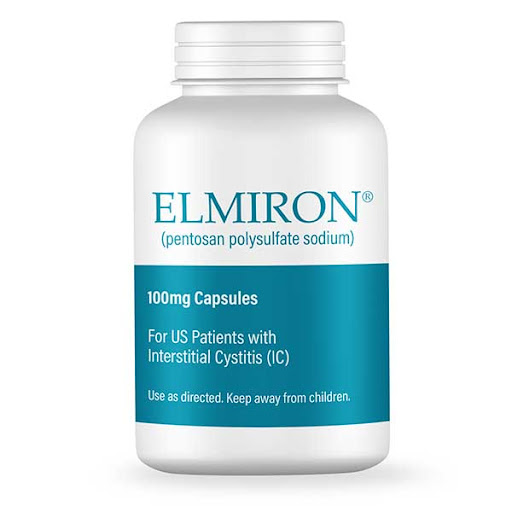 |
|
Beware of potential maculopathy in patients taking pentosan polysulfate sodium for bladder pain syndrome. Click image to enlarge. |
For the small number of patients—usually women—who suffer from bladder pain syndrome, referred to as interstitial cystitis, the drug pentosan polysulfate sodium (PPS) is currently the only FDA-approved oral treatment available. Like most pharmaceuticals, PPS doesn’t come without the risk of potential side effects, including those affecting the eye; specifically, research has suggested that chronic use of the medication may be linked to maculopathy, which could be misdiagnosed as age-related macular degeneration (AMD).
The case report included a male patient in his 70s who previously took 400mg of PPS daily for 10 years and was diagnosed with AMD. After pausing medication use for nine years, the patient began taking it again and experienced ocular symptoms within weeks. This led the study authors to suspect that PPS maculopathy may have actually been the correct diagnosis rather than AMD.
When the patient presented for his annual eye examination while still taking PPS, his right eye OCT scan revealed macular pigment mottling with retinal pigment epithelium (RPE) atrophy superior and inferior to the fovea. The left eye scan showed subfoveal subretinal fluid and RPE atrophy. The patient saw a retinal specialist three weeks later, two weeks after discontinuing the medication. At this visit, a dilated fundus exam and OCT revealed RPE atrophy superior to the fovea with pigment mottling in the right eye, and in the left eye, the doctor observed RPE atrophy centrally with adjacent atrophy. Notably, at this time, no subretinal or intraretinal fluid was noted in either eye.
These findings were stable three months later at the follow-up with the retinal specialist, and the patient was diagnosed with stable PPS maculopathy rather than atrophic macular disease.
This case is not the only example of PPS users who experience potentially related maculopathy. “A retrospective case series of patients with chronic exposure to PPS and subsequent maculopathy was performed by investigators from Emory University in 2018,” the authors noted in their case report. “The outcome significantly raised awareness that PPS, vs. typical macular degeneration, could be the cause of macular changes in individuals being treated for interstitial cystitis.”
Taking a careful case history of each patient, including past and current medication use, is critical to recognizing and determining the root cause of potential ocular side effects. The authors concluded, “As more becomes known about PPS maculopathy, the guidelines for examination may continue to change as PPS maculopathy vs. macular degeneration poses a diagnostic challenge.”
Atanasoff TL, Schleis MN, Keller JA. Maculopathy secondary to chronic use of pentosan polysulfate sodium in treatment of interstitial cystitis. Clin Exp Optom. August 28, 2022. [Epub ahead of print]. |


